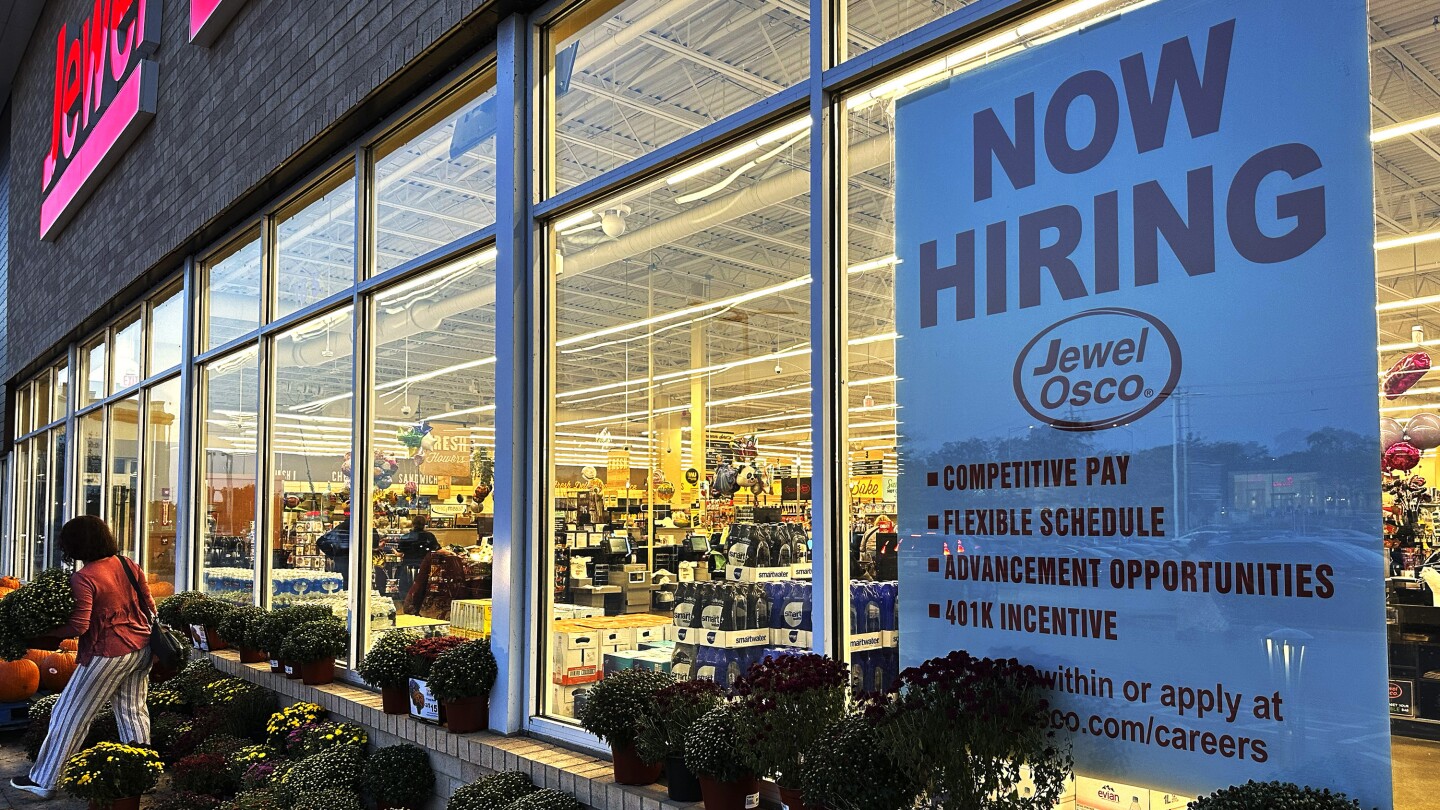NEW YORK (AP) — Most business economists think the U.S. economy could avoid a recession next year, even if the job market ends up weakening under the weight of high interest rates, according to a survey released Monday.
Only 24% of economists surveyed by the National Association for Business Economics said they see a recession in 2024 as more likely than not. The 38 surveyed economists come from such organizations as Morgan Stanley, the University of Arkansas and Nationwide.
Such predictions imply the belief that the Federal Reserve can pull off the delicate balancing act of slowing the economy just enough through high interest rates to get inflation under control, without snuffing out its growth completely.
…
High rates work to slow inflation by making borrowing more expensive and hurting prices for stocks and other investments. The combination typically slows spending and starves inflation of its fuel. So far, the job market has remained remarkably solid despite high interest rates, and the unemployment rate sat at a low 3.9% in October.



“I dunno why we let doctors define all our illnesses.” Yeah it might be cause they are more informed on the nuance of their work to know what defined the terms
Shocks me the confidence some folk have about topics theyve never studied
Apples and oranges. Economics has always struggled with mathematical rigor because it’s a highly dynamic system with too many variables that are impossible to control if only to study well, so our understanding of it and how to shape it is still growing. Most importantly, it doesn’t have the same level of certainty in its claims from a scientific perspective as a panel of doctors would have in discussing illnesses. There’s also the difference in political stakes. The economy is doing the same no matter whether you are able to affix a label on it or not (that many economists won’t want to decide on until it’s behind us). We’re just arguing on whether we get to use that label, when most people in the U.S. are struggling. They’re focusing on what affects them, whereas economists are also looking at a bigger range of other factors, including how businesses and the higher classes are faring. This is where the divide comes from. At the end of the day, you’re not going to convince most people they aren’t in pain, because they are, based on metrics they don’t care about.
Wait, sorry, you were agreeing with the other guy who thinks economists shouldnt be the people defining economic terms?
So, what, you think dentists should be defining economic terms? Plumbers?